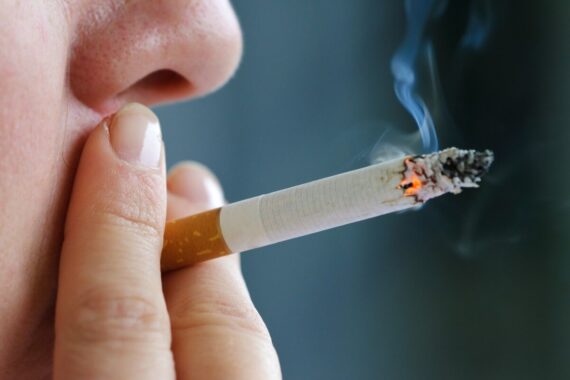The funding available to local smoking cessation services is set to ‘more than double’ by next April to £140m, the Government has announced.
The news came alongside the cementing of plans to effectively ban smoking for future generations, announced in today’s King’s Speech.
The Government said the extra funding would support around 360,000 people a year to set a quit date.
There will also be an additional £5m this year and then £15m a year thereafter (from 2024/25-2028/29) to fund national anti-smoking campaigns to explain the legislative changes, the benefits of quitting and the support available.
The King’s statement to Parliament also mentioned ‘plans to cut waiting lists and transform the long-term workforce of the NHS’, including delivering on the NHS workforce plan and minimum service levels ‘to prevent strikes from undermining patient safety’.
The RCGP welcomed the commitment to ban smoking, but pointed out ‘notable omissions’ in the King’s Speech, including no mention of legislation to regulate physician associates, and no reforms to the current Mental Health Act.
RCGP chair Professor Kamila Hawthorne said: ‘We are pleased to see steps towards a phased smoking ban outlined in today’s State Opening of Parliament. However, a number of notable omissions in the King’s Speech are disappointing.
‘There was no mention of the anticipated regulation of physician associates, expected later this year, to provide much-needed clarity on the role and to assign formal responsibility for their work – or a merging of the specialist and GP registers to reflect the parity of esteem that GPs have with doctors working elsewhere in the NHS.
‘It was also concerning to see the Government fail to introduce reforms to the current Mental Health Act, something that has consistently been promised in their manifestoes, to improve the care our patients with mental health conditions receive.
‘And there was no mention of a ban on the harmful and unethical practice of conversion therapy, something the College has long-supported through our signatory of an MOU with more than 25 other health organisations.
‘The Government’s next opportunity to address the intense workload and workforce pressures facing GPs and our teams will be the Autumn Statement.’
Health and social care committee chair Steve Brine also welcomed the introduction of legislation to create a smoke-free generation.
He added: ‘However, it is disappointing that the government has failed to bring forward legislation to overhaul the Mental Health Act.
‘The draft Bill, among its planned reforms, would outlaw the inappropriate detention of people with learning disabilities and autism.
‘Without change, too many people will continue to be held in secure units, often for years at a time. These reforms are long overdue.’
BMA deputy chair of council Dr Emma Runswick said that the speech showed the Government ‘has the wrong priorities for the NHS’.
She said: ‘Instead of presenting ways to support and expand the medical workforce it has chosen to repress it and devalue it.
‘We have made very clear our opposition to the harsh anti-strike legislation presented in this King’s Speech and will continue to do our utmost to ensure that the freedom to partake in industrial action is protected for all health workers.
‘The strike action doctors have been forced into this year has all been done while already preserving minimum levels of staffing to ensure patient safety.
‘Any further restrictions will be nothing more than an attack on workers rights on top of what are already the tightest restriction on trade unions in Europe.’
She added that by ‘forging ahead with its workforce plan’ the Government also commits to plans for the GMC to become the professional regulation body for physician associates and anaesthesia associates.
Dr Emma Runswick said: ‘These plans are short-sighted, ignore the concerns of the medical profession, and will create yet more uncertainty for patients.
‘At a time when there is growing concern among the medical profession and patients about some physician associates exceeding their clinical skills and knowledge, we are deeply concerned that these plans will create further confusion for patients between the roles of doctors and those who do not have medical degree and are not qualified doctors.
‘These plans to regulate them through the GMC will confirm doctors’ fears that their rigorous multi-year training is being devalued in favour of a potentially dangerous short-cut. This is not the King’s Speech to fix the workforce crisis.’
During his speech closing the Conservative Conference in Manchester last month, Prime Minister Rishi Sunak proposed to raise the smoking age by one year each year to prevent young people from ever taking up smoking.
The Department of Health and Social Care (DHSC) is currently preparing legislation for the regulation of both PAs and anaesthetic associates (AAs), after closing a long-awaited consultation which suggested PAs could get prescribing rights in order to relieve pressure on GPs.
The Government is considering introducing new industrial action regulations which would require NHS doctors and nurses to provide ‘minimum service levels’ (MSLs) during strikes, and announced yesterday following a consultation that it will introduce MSLs in ambulance services.

















